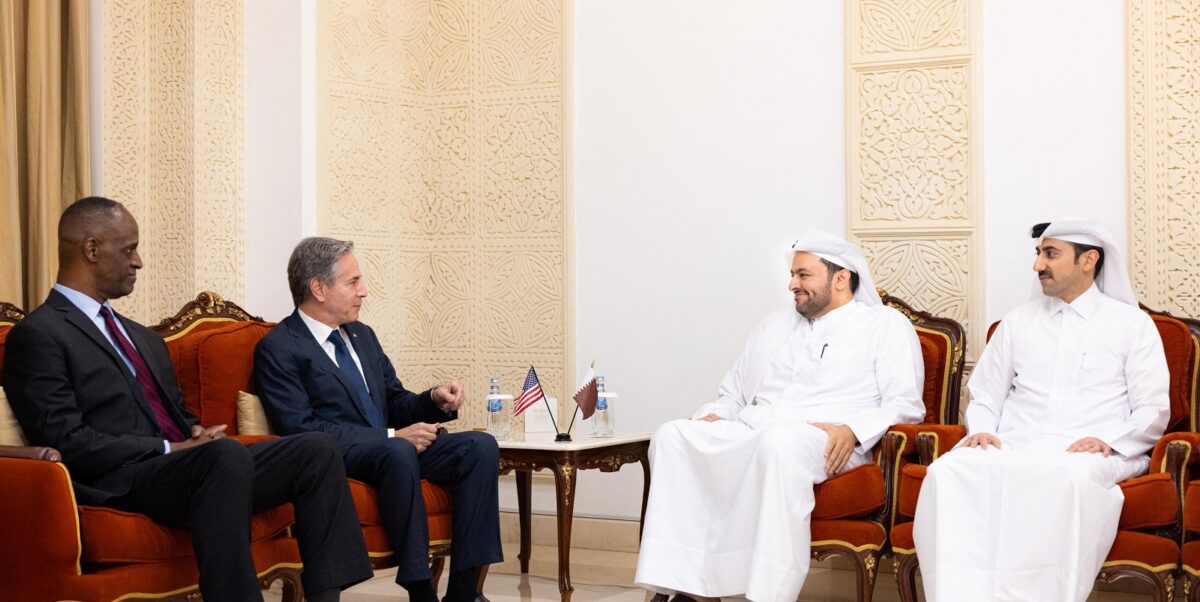
Israel-Hamas negotiations collapse, but full-scale war isn’t inevitable
The recent collapse of negotiations between Israel and Hamas starkly highlights the entrenched mistrust and conflicting agendas that have historically plagued their interactions. Despite rigorous mediation efforts spearheaded by the United States, Egypt, and Qatar, the discussions unraveled, with each party accusing the other of reneging on agreed terms. Israel’s last-minute changes to the conditions, particularly around security measures and prisoner exchanges, were met with resistance from Hamas, exacerbating the already fragile state of the talks and leading to their eventual failure.
Why did the negotiations fail?
The breakdown in talks appears to be rooted in last-minute modifications to the proposed agreement, predominantly from the Israeli side. Reports indicate that Israel introduced new security measures, such as enhanced border controls and stricter monitoring of Gaza’s access points. Additionally, adjustments were made to the timing and conditions of the planned prisoner exchanges, which Hamas perceived as a significant deviation from the original framework. Hamas viewed these changes as attempts to undermine their position, fearing they would erode their leverage and diminish their political and military standing.
Compounding the issue is the US seemingly acquiescing to these Israeli terms, particularly regarding Israel’s ongoing presence in Gaza, which Hamas vehemently opposes. For Hamas, this is non-negotiable, as it takes pride in Israel’s withdrawal from the Gaza Strip in 2005. Reversing this achievement in the current deal would be something Hamas cannot accept or justify to its supporters. The organization’s leadership is acutely aware that they need to secure a deal that portrays them as victors; otherwise, the heavy losses suffered since October 7 would seem in vain. From their perspective, if the attacks led to a destroyed Gaza and 50,000 deaths without any tangible gain, the very rationale behind their offensive will be called into question.
On the other side, Israeli Prime Minister Benjamin Netanyahu is also under immense pressure. He needs a decisive victory over Hamas to solidify his political future. Each side, therefore, is aiming for a deal that they can present as a win to their respective constituencies, but the conflicting demands have made a mutually acceptable agreement increasingly elusive.
This impasse is not without precedent. Similar negotiations have collapsed in the past due to sudden shifts in demands, often driven by external pressures and the deeply ingrained distrust between the two parties. These dynamics are further complicated by the involvement of regional powers like Iran, which, while supporting Hamas, also seeks to avoid a broader conflict that could destabilize the region and threaten its own strategic interests. Additionally, the US alignment with Israel’s terms exacerbates the situation, making a balanced resolution more difficult to achieve.
Potential for new mediation efforts
Despite the current failure, it is likely that new attempts at mediation will emerge. In the past, when initial mediators have struggled, other international actors have stepped in to revive negotiations. For instance, in the 2014 Israel-Gaza conflict, Egypt played a key role in mediating the final truce after US-led efforts stalled. Similarly, European nations or Middle Eastern states could now offer fresh perspectives or incentives to bring the parties back to the table. The Biden administration may also continue its efforts, potentially with adjusted strategies to address the concerns of both sides.
Implications for the region
While the failure of these negotiations will undoubtedly lead to continued suffering, particularly in Gaza, it is unlikely to escalate into a full-scale regional war. Despite some reports suggesting that war might be imminent, the broader context suggests otherwise. Both the US and Iran, despite their opposing roles, have shown a clear interest in avoiding a larger conflict. War requires not just a failure in politics but also substantial resources, which depend on the involvement of bigger players like the US and Iran, who have clearly indicated their opposition to a broader conflict. The US remains focused on maintaining stability in the Middle East, while Iran, despite its support for Hamas, seeks to avoid a confrontation that could threaten its own security and economic interests. This reluctance from the major players presents a significant challenge to smaller actors who might view war as inevitable. Therefore, the coming weeks will likely see continued diplomatic efforts, though the path to peace remains fraught with obstacles.
Ramzi Abou Ismail is a political psychologist and researcher at the University of Kent.
The views in this story reflect those of the author alone and do not necessarily reflect the beliefs of NOW.








